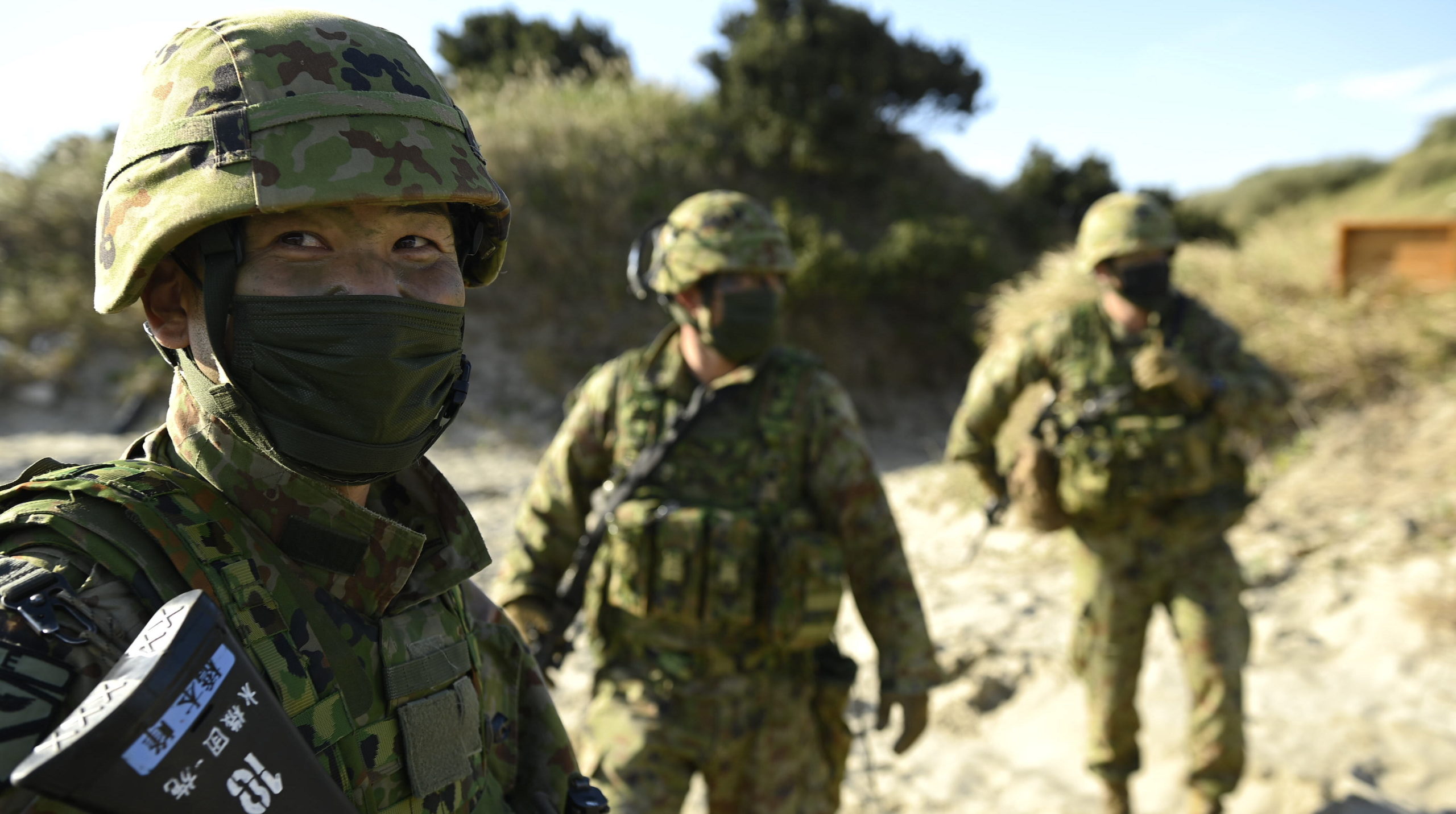Tokyo, Japan
Japan’s Prime Minister Fumio Kishida has pledged his country’s full support to the Ukrainian cause: refugees will be accepted, military supplies will be dispatched and financial sanctions against Russia and Belarus will be imposed. In addition, Japan has committed $200 million of relief aid for Ukraine and diverted 210,000 tones of liquified natural gas to Europe. In other words, Japan is fully on board with the West’s efforts.
This appears to mark a striking departure from Japan’s traditionally reserved and cautious approach to international crises. As recently as 2014 Japan only very reluctantly joined the West in implementing sanctions after Russia’s annexation of Ukraine. That reluctance has now evaporated.
There are numerous factors behind this shift, notably the spectre of a possible Chinese invasion of Taiwan, which looms large in the consciousness of Japanese policymakers. The need to avoid the impression of weakness is paramount. Hints of this strategy were evident in the joint communique that resulted from the Biden-Suga (Kishida’s predecessor) summit last year where Japan and the US reaffirmed their commitment to ensuring peace and stability across the Taiwan strait. Kishida’s much stronger words on Ukraine may be intended for Xi Jinping’s ears as much as Vladimir Putin’s.
In a broader sense Japan is also looking to reposition itself on the global stage and update its status. Japan’s response is believed to be calibrated with that of its wartime ally Germany, both of which are bound by post-war obligations. Powerful forces have been pushing for a revision of its terms and a more pro-active foreign policy for decades now. Often misunderstood as the cause solely of Japan’s far-Right, last year around 48% of the population backed constitutional revision in a poll (as opposed to 31% who were against). Following Russia’s invasion of Ukraine, it would not be surprising if a clear majority was now in favour.
Kishida is generally seen as on the Left of the ruling LDP, but he was unequivocal in a recent press conference that the country “needs to implement a fundamental upgrade of its defence capabilities”. It would have been a highly controversial comment in the recent past, but no more.
Shame is part of the equation too (as always in Japan). The Ukraine crisis brings to mind the 1991 Gulf War, remembered painfully as a time when Japanese self-defence force troops were caught on camera sculpting ice figures at a snow festival while its allies were either waging war in the desert or, at least, sending material aid (Japan made a financial contribution). The loss of face was felt keenly and did much to boost the cause of the constitutional revisionists.
Kishida will have taken note of the feelings of the public too. Tokyoites have taken to the streets to show support for Ukraine with demonstrations outside the Russian embassy and a 2000-strong (huge for Japan) gathering in central Shibuya.
The spectre of a nuclear dimension to the conflict has also clearly been a factor. Any mention of nuclear weapons in Japan sparks a visceral reaction. This may have focused the prime minister’s mind too: Kishida’s family comes from Hiroshima and some of his relatives died in the atomic bombing of 1945.
Lastly, the animus of the protestors may also be partly fuelled by embarrassment at not having taken Putin seriously in the past. The Russian leader has long enjoyed a strange idol-like popularity in Japan. Calendars of the Russian President are bestsellers on Japanese Amazon, and he is admired for his devotion to the Japanese judoka Kano Jigoro and his philosophy of ‘seiryoku-Zenyo’ (maximum efficiency). Putin was awarded the sixth-dan (higher than a black belt) by the Japanese judo association in 2000 and won plaudits in Japan by saying he felt “at home” when visiting the Kudokan in Tokyo (the sport’s world headquarters) and praising judo for “spreading Japanese culture and the Japanese spirit across the entire globe”.
For the Japanese it appears that their illusions of the Russian leader have been shattered, as have their illusions about maintaining a quasi-neutral, pacifist stance in an increasingly dangerous world. While it remains to be seen whether Prime Minister Kishida’s pledges will have much effect on the conflict in Ukraine — and no actual figures for refugees to be accepted have been disclosed — the rhetoric alone marks a clear departure from precedent.
And there will surely be no going back.











Join the discussion
Join like minded readers that support our journalism by becoming a paid subscriber
To join the discussion in the comments, become a paid subscriber.
Join like minded readers that support our journalism, read unlimited articles and enjoy other subscriber-only benefits.
Subscribe